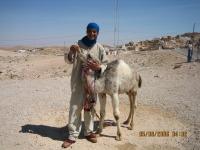On my way to this Northeastern corner of Estonia I met on the train a gentelman I had been longing to meet. In Elva, Mrs. Hünerson had spoken with such love, respect and admiration of her absent husband that I wanted to know him. Now, just across the aisle from me, sat a middle-aged man who struck me at once as being both distinguished and vital - rather a rare combination, because so many men use up their vitality in the process of attaining distinction. Seeing that I was trying to write on a tablet held on my knee, he invited me to come across the aisle and write on his little table. “It will be easier for you,” he said.
“What? You speak English? Thank you very much,” and I moved over. “Yes. I have just recently spent some months in England - shall I raise the curtain so you can have more light? “ “Tänan väga” - I had come by now to say this quite automatically. He laughed. “So you speak Estonian?” “No. I wish I did. But I have so many occasions to say thank you I had to learn that much Estonian.” “ You are American?” “Yes. California.” “I think, then, you know my family. My name is Hünerson. My wife told me about your visit with her.”
So he had got home from his long vacation! I could not help wondering, as i looked at him, and remebered his fine wife, and her fear lest he outgrow her, how their meeting had gone. I longed to ask him this intimate question, but of course I couldn’t; so I contended myself with asking him an impersonal question, which was, after all, equally interesting to me. “Is Estonia really a democracy? Some people call President Päts a dictator - “
“Yes certainly, we are a democracy,” he said. “But there are still a good many restrictions on our freedom arising from the fear of war. You know our history?” “I do. You have had to fight off German domination and Russian domination - “
“And Fascism and Communism among our own people,’ he added. “We have had almost as much reason to fear internal revolution as external attack. And where fear is, there can be no true liberty. For instance, we have to use much time and energy to be ready for defense. I wish we could devote that time and energy to education of a broader kind, and to the development of our industry and culture. I am on my way now to inspect an agriculture school. I wish all the young men now in military school could study, instead, in schools of agriculture or a school of agriculture or a school of other peacetime pursuits. But that is impossible under present world conditions,” he sighed. “So small a nation as we are, within the reach of strong aggressive nations desirous of more territory, must keep ourselves so ready for defense that no enemy can catch us unawares, or get in an entering wedge. By means of our defense Union, the whole countyr is organized against an invasion, and no swift campaign can succeed; and in a long war, we might find allies. “But don’t think we are a militant people. We hate war. We have suffered from it terribly and recently. In our little country we feel personally the loss of every man who is maimed or killed. But we realize that we should be quickly enslaved again to a foreign power if we permitted ourselves to be less vigilant.”
Advertisement / Reklaam
Advertisement / Reklaam
I asked him about the alarms I had heard about - sounded at any hour of the day or night, summoning people from their sleep or their work to come instantly to their stations. “Yes,” he said. “We do that. It is a good deal like boat-drill on board ship, but more thorough than any boat drill I ever saw. We can mobilize the whole country in a few hours. We could not resist such giants as Russia or Germany for a long time without aid, of course; but our hope is to keep them off until aid reaches us. At least if they attempt to swallow us, they will find themselves with a hot stone in the mouth.”“At what age does military training begin?” I asked. “At seventeen.” “And end?”
At fifty-five. Thirty-eight years in all. “ he said. My goodness!” I thought this over. And are the people willing to give so much time to military drills?” “Yes; on the whole they are. They see the necessity. But of course this is not full time service. At twenty, every able-bodied male citizen must serve in the army, either a year or eighteen months, according to the branch he joins. The reserve service is designed merely to keep him fit and ready.”
“Like our National Guards,” said I. “Militia, not standing army.” “Yes, militia. But here every man up to fifty-five years of age belongs to the militia, and almost every woman belongs to the Defense Union.”
His station was called: He said goodbye. And this conversation , as it proved, was a fitting approach to Narva, for Narva, as a frontier city, and an important port, has been the scene of many battles.
(To be continued)




















